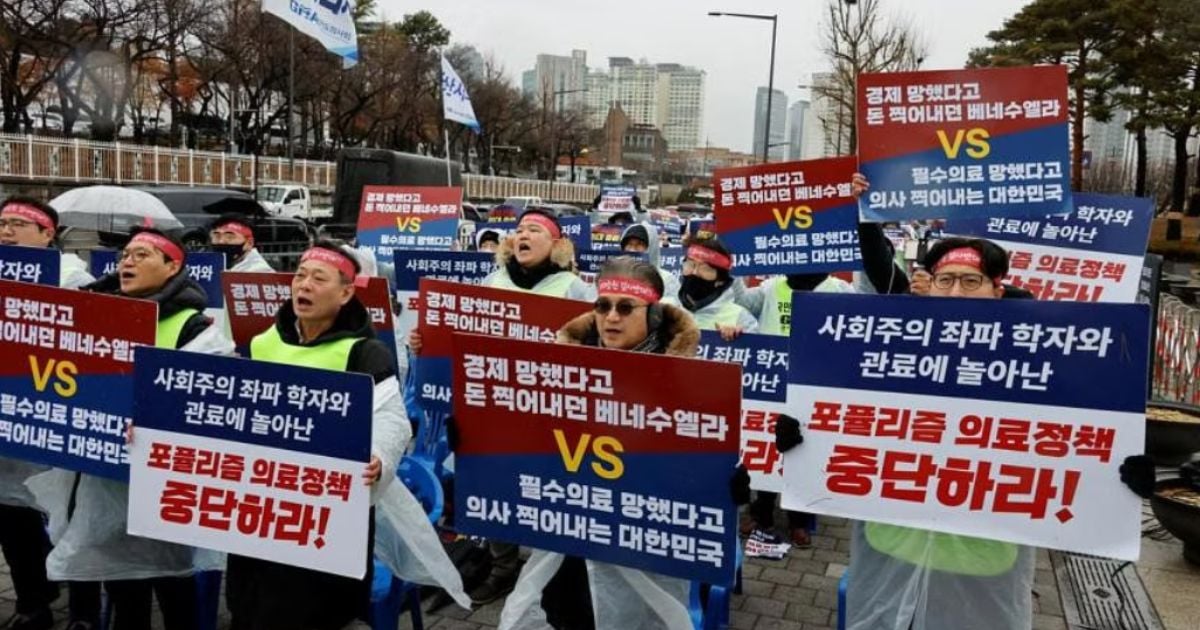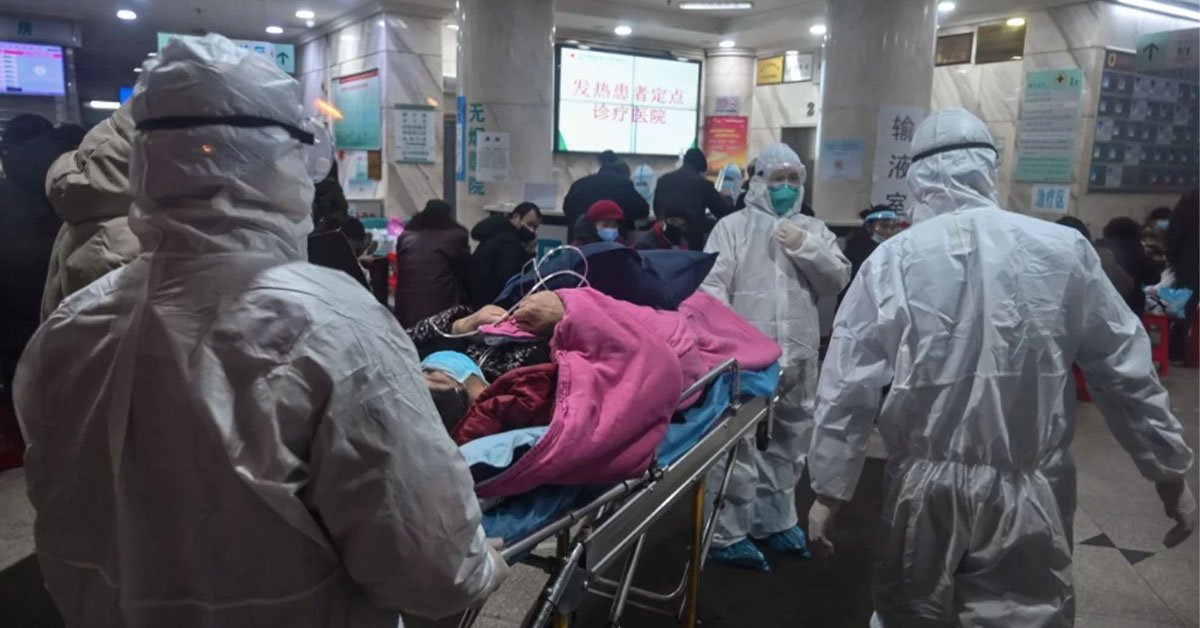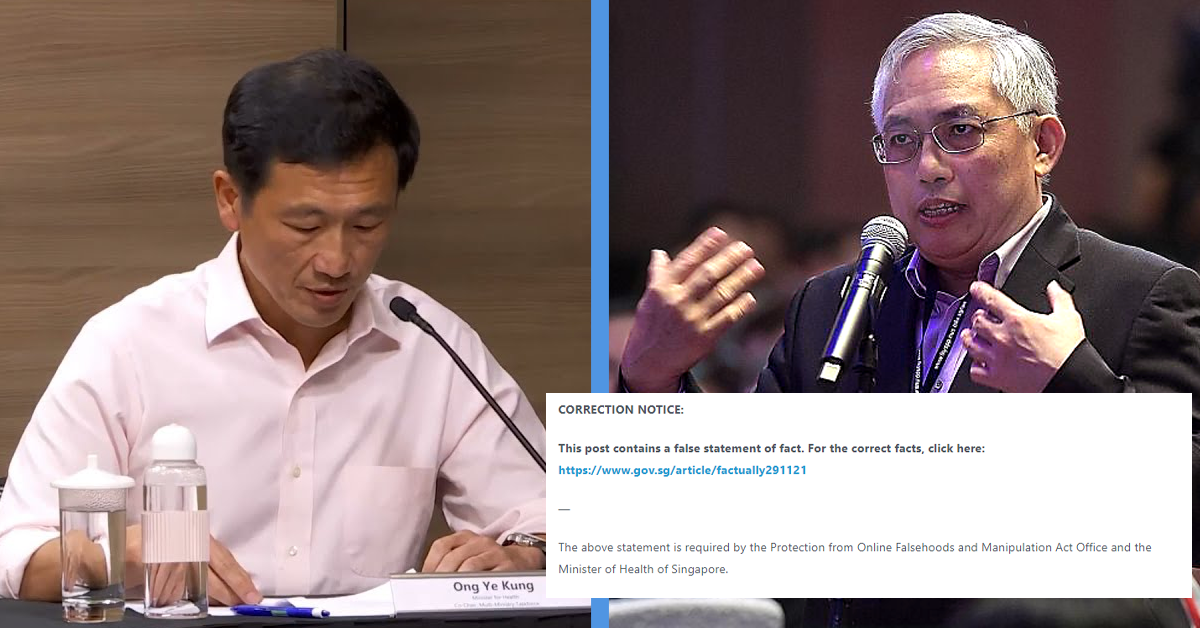What would you do if you were sent to a hospital after a car crash, only to be turned away because there aren’t enough doctors?
Reader: Wait, what? No doctors? How can a hospital have no doctors?
This is the reality for those living in South Korea right now as nearly two-thirds of the country’s young doctors have vowed to stay off the job in protest.
The Protest
The South Korean government announced plans to increase medical school admissions (from the current 3,058 students to just over 5,000) to boost the healthcare sector of one of the world’s most rapidly ageing societies.
This was met with protests by young doctors. That sounds weird, but read on and you’d understand.
According to the Ministry of Health, 9,275, or 74.4% of them, had submitted their resignations to hospitals by 21 February – which were not accepted – and ceased their activities.
This has forced major general hospitals to cancel up to 50% of operations and turn away patients seeking emergency medical care. Should the dispute drag on, there could be further disruptions to the medical system.
South Korea has raised its public health alert to “severe” for the first time, and emergency departments of all but one of South Korea’s biggest hospitals were on red alert on 22 February.
Currently, over 8,400 doctors have joined the walkout, equivalent to about 64% of all the resident and intern doctors in South Korea.
The doctors say the real issue the government should be addressing is their pay and working conditions. They claim they are not directly protesting against the plans to increase admission to medical school.
Critics, on the other hand, say that these doctors simply fear the reform could erode their salaries and social prestige.
Park Dan, head of the Korea Interns and Residents Association which is taking part in the protest, said he was willing to be arrested, so that the doctors’ demands are heard.
“Everyone is angry and frustrated, so we are all leaving hospitals. Please hear our voices,” he said in a radio interview. He added that they were open to dialogue if the government was ready to listen to their demands.
During a protest rally in the southwestern province of North Jeolla, some 200 doctors and medical college students raised concerns that an increase in admissions will compromise the quality of medical education.
“We took to the streets like this because we are concerned that South Korea’s medical system, which is the most envied in the world, would collapse,” Um Chul, head of the Jeonbuk Medical Association, said, according to Yonhap news agency.
“Doctors aren’t playing turf wars,” he added.
Another rally was held in Seoul by about 300 doctors near the presidential office, calling on the government to scrap its plan.
On the other hand, government officials are calling on doctors to stop their protests and prioritise patients. The government has threatened to arrest the doctors leading the walkout.
Vice health minister Park Min-soo said those who do not return by 1 March will face a minimum three-month suspension of their medical licence among other legal action.
Many Koreans support the government’s plant to increase medical school admission, with a recent Gallup Korea poll showing about 76 per cent of respondents in favour, regardless of political affiliation.
I guess if the government allows more people to entire an elite course that guarantees a high salary, few people would be opposed to this.
During a hearing in parliament, Prime Minister Han Duck-soo rejected claims by some doctors that the plan to increase the number of medical students was aimed at gaining votes ahead of April’s general election.
Protestors say that South Korea already has sufficient doctors, and that the government isn’t focusing on the real problem
They say the government needs to increase pay and reduce the workload, particularly in key areas such as paediatrics (children’s medicine) and emergency medicine, before recruiting more students.
In response, the government said more doctors will be needed to meet future healthcare challenges posed by South Korea’s rapidly ageing society. The government has forecast that more than a fifth of the country’s population of 51 million will be aged over 64 by 2025.
Meanwhile, South Koreans waiting for medical care are suffering due to this tug-of-war.
Newspaper JoongAng Ilbo reported that motel rooms and rental houses were fully booked near Seoul’s major hospitals by patients from the countryside whose procedures have been delayed.
Hong Jae-ryun, a brain cancer patient in his 50s, told the AFP news agency that his chemotherapy had been postponed without clear future dates due to the current situation, even though the cancer has spread to his lungs and liver.
A 34-year-old office worker with a broken leg told Reuters that he had been turned away by three hospitals before finally receiving treatment at a publicly run medical centre in Seoul.



